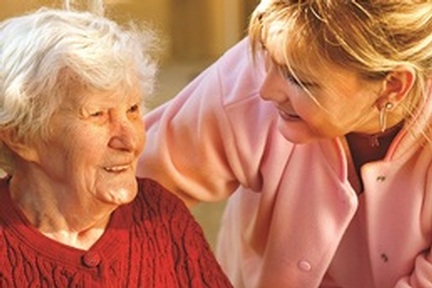The future of residential care - a mix of better policy and better PR?
In the past month, several reports were published with specific recommendations for care homes and the care sector whilst the Government announced a new inspection regime for rating care homes. All in the aim of improving care for residents - but also improving the public image of residential care. 
In an effort to “personalise” care and make residents feel more comfortable, from this October 25,000 care home and homecare providers will be subject to a new inspection regime, which will assess whether they are creating a “real sense of an individual’s home”.
Minister for Care, Norman Lamb, made the announcement after the Dementia Centre at Stirling University published suggestions about how to improve care homes, which included allowing people to paint their bedroom doors whatever colour they want, surrounding themselves with personal photographs and ensuring rooms have plenty of natural light. The worst homes can be put on special measures with a limited time to improve or face closure.
This month the DEMOS Commission on Residential Care also published its long awaited report “A vision for care fit for the twenty-first century”. The Commission, chaired by former Care Minister Paul Burstow MP and made up of academics, experts and practitioners, made several specific recommendations for improving the future provision of care but also improving the public image of residential care.
Their most significant policy proposal called for the sale of land owned but not used by the NHS, to build more care homes and meet the rising demand for residential care. According to the report around 5,000 hectares of land next to NHS hospitals is currently not being used for medical facilities and could be sold at a reduced price in return for including care facilities.
The report also called for a separation of housing and care costs and the introduction of individual tenancy rights, which would give care home residents the same security and rights as those moving into supported housing or care villages – which includes more of a say on how their home is run.
The Commission equally focused on the sector’s poor public image and highlighted that despite evidence from regulators that standards in residential care are steadily improving, the negative perceptions of care homes as a places of illness and frailty and more of a last resort still persists.
The report made several recommendations for countering the negative public perceptions of residential care such as:
- Re-branding care by replacing the term ‘residential care’ with ‘housing with care’ to better describe care options in the sector such as care homes, villages and supported living for older and disabled people.
- Deliberately combining care homes with educational or community centres such as gyms, libraries and nurseries to give more people first hand experiences of care establishments and to “normalise” them so that older generations are not segregated.
Paul Burstow also stressed that the sector needs to shake off the negative image of care work as a low-wage, low-skill, and high-turnover job, which should be done by increasing wages but also increasing training and career opportunities. However, changing the reputation or ‘branding’ of residential care cannot be done through a top-down approach alone. Care homes need to make more of an effort at showcasing themselves to the public. Nice marketing catalogues might help a family to choose a care home but not change their perception of the entire sector.
Isolated incidents of abuse in care homes stick in people’s minds and give the entire industry a bad image. Having a crisis communications strategy in place to deal with such cases is critical but positive PR is even more important in helping to counter negative perceptions of residential care.
Initiatives such as National Care Home Open Day, a day when care homes across the country open their doors to friends, and neighbours and local residents contribute to changing mind sets but more needs to be done. The DEMOS Commission’s report emphasises the need for policy changes but also clearly stresses the need for better PR.
Latest Opinion News
 27-Sep-19
Comedian reveals complexities of performing for people with dementia
27-Sep-19
Comedian reveals complexities of performing for people with dementia
 23-Jul-19
Care home residents go wild for 30 days making daisy chains and counting bees
23-Jul-19
Care home residents go wild for 30 days making daisy chains and counting bees
 02-Jul-19
National festival to celebrate care workers
02-Jul-19
National festival to celebrate care workers
 24-Jun-19
Exclusive: Care Minister Caroline Dinenage tells care homes 'loneliness is everyone's business'
24-Jun-19
Exclusive: Care Minister Caroline Dinenage tells care homes 'loneliness is everyone's business'
 16-Apr-19
Exclusive: Care Minister Caroline Dinenage on EU care workers' rights after Brexit
16-Apr-19
Exclusive: Care Minister Caroline Dinenage on EU care workers' rights after Brexit